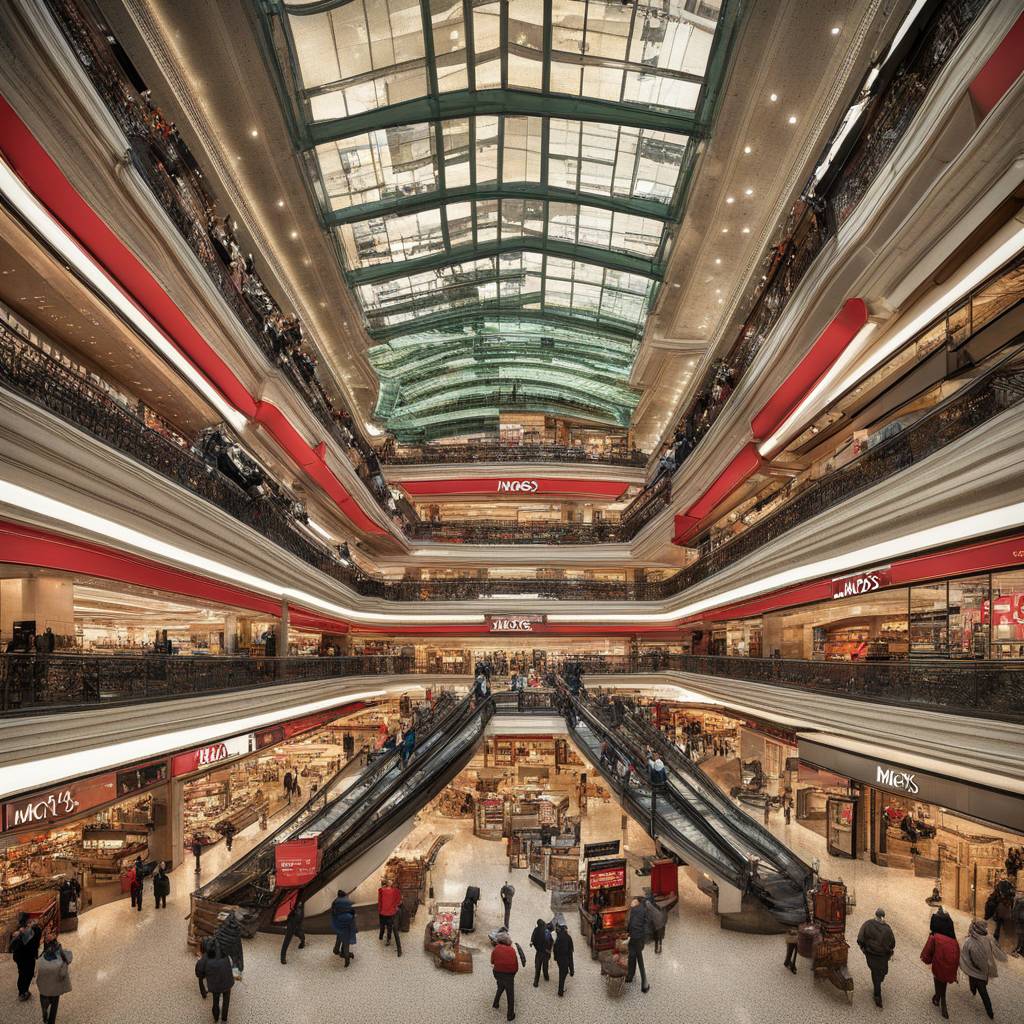Department stores have been a staple of shopping culture for over a century, with many iconic names like Bloomingdale’s and Macy’s leading the way in fashion trends and customer service. However, in the 21st century, these department stores are facing tough times as online shopping becomes more popular and consumer preferences shift. With Macy’s closing 150 unprofitable stores and Neiman Marcus shutting down its high-profile New York location, the future looks uncertain for many traditional department stores.
The rise of online retailers like Amazon selling high-end beauty products previously exclusive to department stores, such as Clinique, is a sign of the changing times. With Macy’s potentially being sold to investors interested in its real estate, there are concerns about the future viability of this once iconic retailer. As customers increasingly turn to online shopping or competitors for their beauty products, department stores are struggling to adapt to the evolving retail landscape.
While some department stores like Dillard’s in the Southern States are managing to stay afloat by offering fresh merchandise and using data-driven decision-making, many others are facing challenges. The traditional family leadership that once guided department stores like Bloomingdale’s and Macy’s has been replaced by professional executives, leading to a loss of the personal touch that once set these stores apart.
European department stores have also faced challenges, with German stores like Galeria Kaufhof and Karstadt filing for bankruptcy after a failed merger. In contrast, French stores like Galeries Lafayette and Printemps continue to thrive, with a focus on showcasing leading fashion brands and offering a personalized shopping experience. Japanese department stores have also embraced American merchandising techniques and adapted their marketing strategies for the internet age.
The potential acquisition of Macy’s by investment firms has raised concerns about the future of the iconic retailer and the department store industry as a whole. As discussions continue, former employees and loyal customers hope that Macy’s will not lose its rich history and iconic status as a cornerstone of American retail. The future of department stores remains uncertain, with online competition and changing consumer preferences challenging the traditional retail model.
Despite the challenges, there is still hope that department stores can reinvent themselves and continue to be a vibrant part of the retail landscape. With a focus on innovation, customer service, and adapting to new trends, traditional retailers like Macy’s and Bloomingdale’s can potentially thrive in the digital age. The death of Macy’s would not only be a loss for the department store industry but also a blow to the rich history and cultural significance of these iconic retailers.













